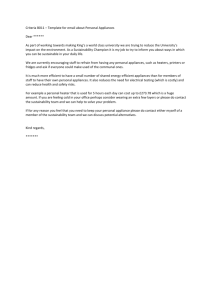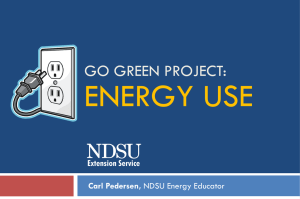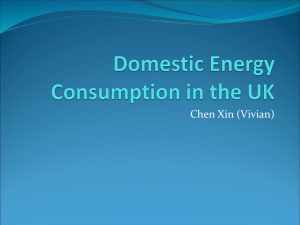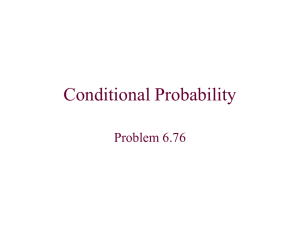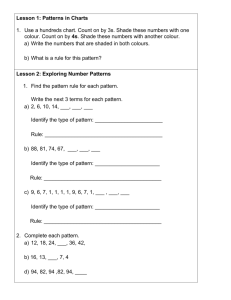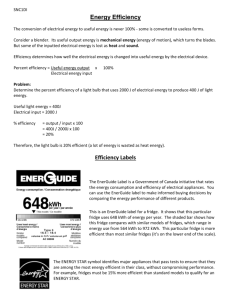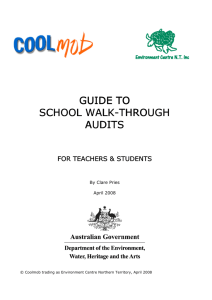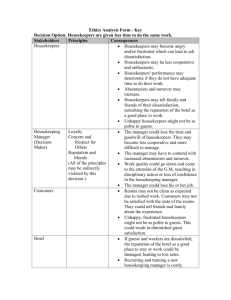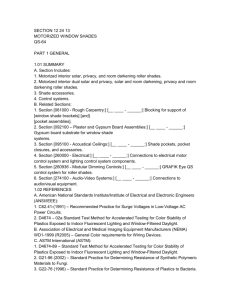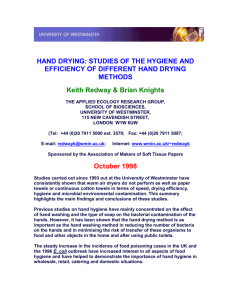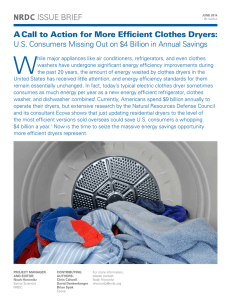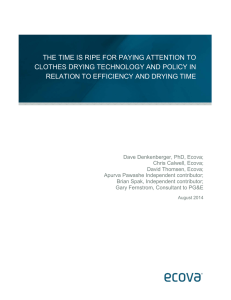Energy Saving Tips for Caribbean Hotels
advertisement
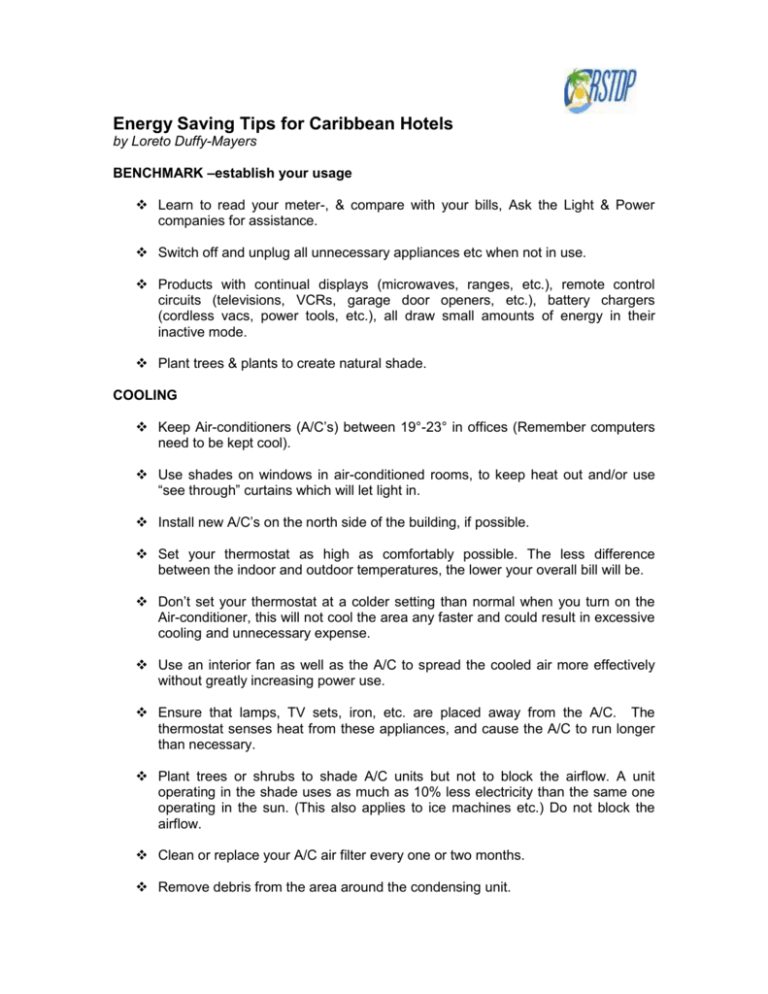
Energy Saving Tips for Caribbean Hotels by Loreto Duffy-Mayers BENCHMARK –establish your usage Learn to read your meter-, & compare with your bills, Ask the Light & Power companies for assistance. Switch off and unplug all unnecessary appliances etc when not in use. Products with continual displays (microwaves, ranges, etc.), remote control circuits (televisions, VCRs, garage door openers, etc.), battery chargers (cordless vacs, power tools, etc.), all draw small amounts of energy in their inactive mode. Plant trees & plants to create natural shade. COOLING Keep Air-conditioners (A/C’s) between 19°-23° in offices (Remember computers need to be kept cool). Use shades on windows in air-conditioned rooms, to keep heat out and/or use “see through” curtains which will let light in. Install new A/C’s on the north side of the building, if possible. Set your thermostat as high as comfortably possible. The less difference between the indoor and outdoor temperatures, the lower your overall bill will be. Don’t set your thermostat at a colder setting than normal when you turn on the Air-conditioner, this will not cool the area any faster and could result in excessive cooling and unnecessary expense. Use an interior fan as well as the A/C to spread the cooled air more effectively without greatly increasing power use. Ensure that lamps, TV sets, iron, etc. are placed away from the A/C. The thermostat senses heat from these appliances, and cause the A/C to run longer than necessary. Plant trees or shrubs to shade A/C units but not to block the airflow. A unit operating in the shade uses as much as 10% less electricity than the same one operating in the sun. (This also applies to ice machines etc.) Do not block the airflow. Clean or replace your A/C air filter every one or two months. Remove debris from the area around the condensing unit. Install a ceiling fan, attic fan, and automatic or programmable thermostats. Have your cooling equipment serviced by a professional technician every quarter. Seal air leaks and tighten air ducts. LIGHTING Use fluorescent and compact fluorescent bulbs. Regularly clean lighting fixtures both inside and out. Install dimmer switches where incandescent lighting is used. Use motion sensor lights for security purposes. Eliminate or reduce any pool-area / tennis court lighting not needed for safety and security. EQUIPMENT MAINTENANCE Replace old equipment with Energy Star products, when it is no longer efficient to operate. Replace air-conditioners, fridges, washing machines, and dryers etc. which are more than 8 years old. Always fill (not overfill) washing machines, dishwashers, ovens, etc. Clean lint screens in dryers. Keep dryers' outside exhausts clean. Ensure that fridges / freezers are not overstocked. Check the settings on fridges – keep them at normal rate. Check refrigerator door seals regularly to make sure they're airtight. evaporator coils clean and free of ice build-up. Keep Brush or vacuum dirty refrigerator or freezer coils. HOUSEKEEPING Encourage housekeepers not to turn on televisions while cleaning. Once a room has been made up, all lights and appliances should be turned off. Encourage housekeepers to not let the tap run while they clean tubs and sinks. OTHERS Backwash swimming pool filters only when pressure loss through filters reaches the prescribed or recommended values. Use compostable paper towels rather than hand dryers. Use solar & natural gas rather than electricity, where possible. Use equipment in off-peak hours as much as possible. This tool has been reproduced with the kind permission of the author, Loreto Duffy-Mayers. It is the first in a series of cost saving tips for Caribbean Hotels. Others in the series will feature water saving tips, solid waste management tips and reducing the use of hazardous materials. The author is Director of Environmental Programmes, Almond Resorts Inc, Barbados & St. Lucia, Chair of the Barbados Hotel and Tourism Association Environmental Committee and Vice –Chair of the Caribbean Alliance for Sustainable Tourism (CAST)
